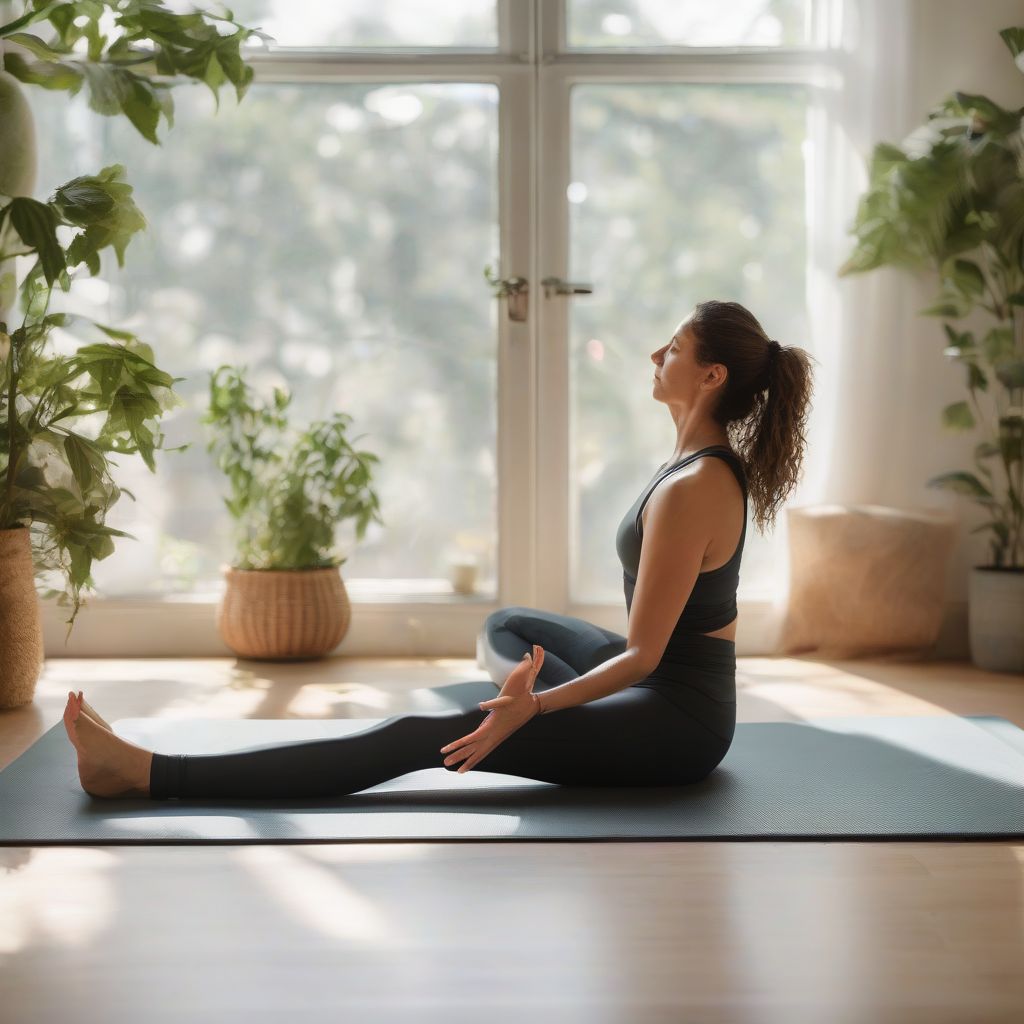Have you ever noticed how yoga makes you feel not just physically stronger, but also calmer and more centered? That’s the beauty of yoga – it’s not just exercise; it’s a holistic practice that nourishes your mind, body, and spirit. As a nutritionist and meal prep coach, I’ve seen firsthand how powerful a holistic approach to health can be. And incorporating yoga is a fantastic way to enhance your overall well-being. Let’s dive into how you can use yoga to cultivate holistic health in your own life.
Understanding Holistic Health and Yoga’s Place
Before we unroll the mat, let’s define “holistic health.” It’s a philosophy that recognizes the interconnectedness of your physical, mental, and spiritual well-being. Instead of treating these aspects in isolation, holistic health focuses on nurturing all of them for true vitality.
This is where yoga shines. Originating in ancient India, yoga is a mind-body practice that emphasizes the union of your physical and mental states. Through physical postures (asanas), breathing exercises (pranayama), and meditation techniques, yoga provides a path to cultivate balance and harmony within.
The Multifaceted Benefits of Yoga
Yoga isn’t just about touching your toes; it offers a wealth of benefits that touch upon every aspect of holistic health:
Physical Well-being
- Increased Flexibility and Balance: Regular yoga practice gently stretches and strengthens your muscles, improving your range of motion and stability.
- Enhanced Strength and Endurance: Holding yoga poses builds muscle strength, while the flowing movements enhance cardiovascular health.
- Reduced Risk of Chronic Diseases: Yoga’s positive impact on stress, blood pressure, and body weight can contribute to a lower risk of heart disease, type 2 diabetes, and other chronic conditions.
- Improved Sleep: The relaxation techniques in yoga can promote better sleep quality and help you fall asleep easier.
Mental Well-being
- Stress Reduction: Yoga’s emphasis on deep breathing and present moment awareness activates your parasympathetic nervous system (your “rest and digest” mode), effectively reducing stress hormones.
- Improved Focus and Concentration: The meditative aspects of yoga train your mind to stay present, sharpening your focus and enhancing concentration.
- Reduced Anxiety and Depression Symptoms: Studies show that regular yoga practice can alleviate symptoms of anxiety and depression by regulating mood and promoting feelings of calm.
Spiritual Well-being
- Increased Self-Awareness: Yoga encourages you to tune into your body’s sensations and your thoughts, fostering a deeper connection with yourself.
- Sense of Purpose and Connection: The philosophical principles of yoga, such as compassion and self-acceptance, can help you cultivate a greater sense of purpose and connection to something larger than yourself.
Choosing the Right Yoga Style for You
With so many yoga styles available, finding the right one can feel overwhelming. Here’s a quick overview:
- Hatha Yoga: A gentle, slower-paced style perfect for beginners.
- Vinyasa Yoga: A more dynamic, flowing style that links breath with movement.
- Ashtanga Yoga: A physically demanding style with a set sequence of poses.
- Yin Yoga: A meditative style where poses are held for several minutes to release deep tension.
- Restorative Yoga: A deeply relaxing style using props for support and promoting healing.
The key is to experiment and find a style that resonates with your fitness level, goals, and preferences.
 Woman Doing Yoga Pose on Mat in Peaceful Room
Woman Doing Yoga Pose on Mat in Peaceful Room
Incorporating Yoga into Your Daily Routine
You don’t need to be a yogi master to reap the benefits. Here’s how to integrate yoga into your life:
- Start Small: Even 10-15 minutes a day can make a difference. Try a short online class or follow along with a beginner-friendly video.
- Create a Dedicated Space: Designate a quiet area in your home where you can practice without distractions.
- Listen to Your Body: Yoga should never be painful. Respect your limits and modify poses as needed.
- Be Patient and Kind to Yourself: Yoga is a journey, not a destination. Be patient with your progress and celebrate your achievements.
Yoga: A Holistic Approach to a Healthier You
Incorporating yoga into your routine can be transformative. Just as mindful eating nourishes your body, yoga nourishes your mind and spirit. By embracing this holistic practice, you can unlock a deeper sense of well-being, cultivate inner peace, and move through life with greater ease and joy.
Remember, holistic health is about finding what feels good for you. Experiment with different styles of yoga, listen to your body’s wisdom, and enjoy the journey to a healthier, more balanced you!
Ready to enhance your holistic health journey? Check out these insightful articles:
[amazon bestseller=”yoga mat”]
